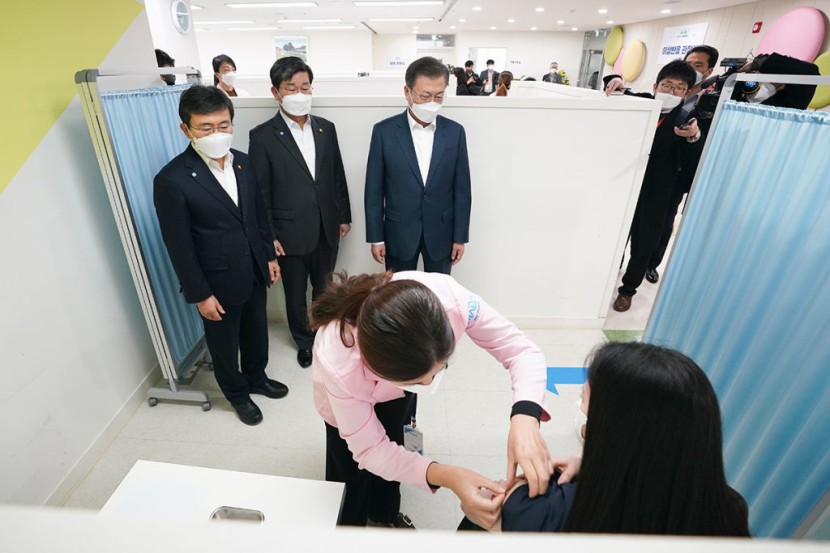Health officials in South Korea investigate two citizens' deaths in nursing home care who both died within days after receiving AstraZeneca's COVID-19 vaccine.
AstraZeneca's COVID-19 vaccine under investigation

South Korean health authorities are looking into two patients in long-term care facilities who died just days after receiving AstraZeneca's COVID19- vaccine. That was a week after the country started its vaccination campaign. One of the victims was a 63-year-old nursing home resident with the cerebrovascular disorder who died after showing symptoms of blood poisoning and pneumonia, according to Yonhap, a South Korean news agency.
In his 50s and had a cardiac condition and diabetes, the other patient died after experiencing signs of heart failure and trouble breathing. According to the study, local health authorities have yet to assess if AstraZeneca's COVID-19 vaccine caused any side effects in the patient or whether the vaccines played any part in the deaths.
The Korea Disease Control and Prevention Agency (KDCA) reported to Reuters that it was investigating the cause of the deaths. Still, it refused to comment on the specifics of the Yonhap report.
Read also: REPORT: CDC Claims Americans Who Get COVID-19 Vaccine Can Gather Indoors Without Masks
According to the KDCA, 85,904 people in South Korea have received their first doses of the AstraZeneca vaccine as of Tuesday midnight. Another 1,524 individuals were given Pfizer vaccines.
With comprehensive monitoring, tracing, and quarantine services in progress at the onset of the pandemic, South Korea was able to keep the total number of COVID-19-related deaths below 2,000. The country started vaccines last week. The KDCA announced that more than 2.1 million doses of the COVID-19 vaccine would be distributed to South Korea by May under the World Health Organization-backed Covax initiative.
Read also: Pfizer's COVID-19 Vaccine May Not Work Well on Obese People, Study Claims
South Korea monitors the COVID-19 vaccine's possible side effects
The KDCA has closely monitored the vaccination process, documenting a total of 209 cases of vaccine side effects, the majority of which were mild symptoms, including a fever, Forbes reported. Three reports of anaphylactoid reaction close to an extreme allergic reaction following vaccination were suspected.
However, health experts are yet to discover a direct connection between vaccination and such serious side effects. Anaphylaxis after a vaccine is rare and can be treated easily and efficiently if it happens, according to the US Centers for Disease Control and Prevention (CDC).
Since receiving AstraZeneca's COVID-19 vaccine, the first man developed high fever symptoms, according to the agency's director, Jeong Eun-kyeong. Jeong said that KDCA is conducting epidemiological surveys with the local authorities to confirm any correlation with inoculation.
Read also: You May Have Had COVID-19 Without Realizing It If You Experience These Signs
According to Daily Mail, a spokeswoman for AstraZeneca in Seoul said the firm had no comment. There have been no deaths related to the COVID-19 vaccines produced by AstraZeneca or Pfizer/BioNTech, as per Jeong.
People were told to have a shot only if they were in good health. Last week, South Korea started immunizing its people. KDCA said in a statement that by Tuesday midnight, 85,904 people had received the first doses of the AstraZeneca vaccine, and 1,524 had received Pfizer vaccines.
Read also: Michigan Transplant Patient Dies from COVID-19 2 Months After Receiving Lungs That Carried the Virus
© 2026 HNGN, All rights reserved. Do not reproduce without permission.








